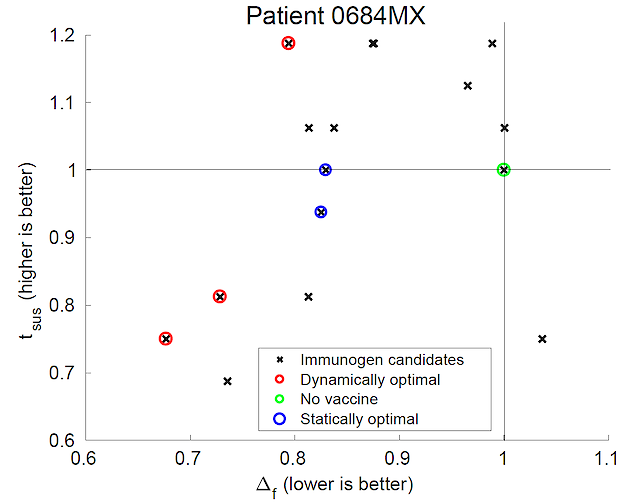Computational design of hepatitis C virus immunogens
Physical Biology 2018

Hepatitis C virus claims hundreds of thousands of lives each year despite the availability of efficacious treatments. Inexpensive prophylactic vaccination offers the best hope of controlling the epidemic in the developing world where treatment access is limited. We employed maximum entropy inference to translate databases of viral sequences into data-driven fitness landscapes to quantitatively link viral genotype to phenotypic fitness and reveal vulnerable immunological targets in the viral genome. We modeled the coupled host-pathogen dynamics over this fitness landscape combining agent-based models of viral mutation with stochastically-integrated ordinary differential equations of the host immune response to computationally design vaccine immunogens that both cripple viral fitness and block mutational escape. These data-driven design and computational optimization principles provide the foundational elements for our data-driven inference of protein genotype-phenotype relationships and their use for rational protein design.